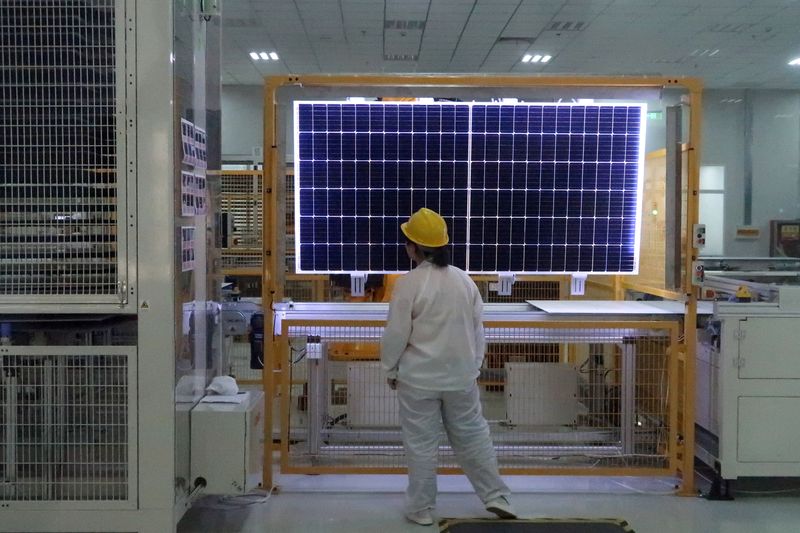(Reuters) - Democratic lawmakers on Tuesday asked U.S. customs officials to explain why three major Chinese solar energy companies were excluded from a list of importers whose products are banned under a new law aimed at cracking down on forced labor.
Expanding the scope of barred products could threaten U.S. solar panel supplies at a time the import-dependent industry is already grappling with supply chain disruptions, transmission constraints and other obstacles. Those challenges are a major headwind to President Joe Biden's goal to decarbonize the U.S. power sector by 2035.
The Uyghur Forced Labor Prevention Act (UFLPA) took effect last month to cut U.S. purchases of products from Xinjiang, where Chinese authorities are reported to have established forced labor camps for ethnic Uyghurs and other Muslim groups.
Beijing denies abuses in Xinjiang, but says it has set up "vocational training centers" to curb what it says was terrorism, separatism and religious radicalism in the region.
The law gives U.S. Customs and Border Protection (CBP) discretion over which companies' imports should be banned, and its list currently includes several makers of solar-grade polysilicon, a raw material used to produce solar panels.
In a letter to Homeland Security Secretary Alejandro Mayorkas and CBP Commissioner Chris Magnus, seven House Democrats led by Tim Ryan of Ohio requested information on how a federal task force compiled its list.
It asks specifically why JinkoSolar (NYSE:JKS) Holding Co Ltd, Xinte Energy Co Ltd and Longi Solar were left off the list even though all three were included in a 2021 report by geopolitical risk consultancy Horizon Advisory that found signs of ties to forced labor in their supply chains.
"We recognize the increasing importance solar energy will assume in reducing future greenhouse gas emissions and mitigating the effects of climate change," the letter said. "However, this recognition, along with the relative under-diversification of the solar industry’s supply chain, cannot cause the U.S. to compromise on values as fundamental as our commitment to upholding human rights."

Officials from the Department of Homeland Security, CBP and the three companies were not immediately available for comment.
JinkoSolar said in 2021 it condemned the use of forced labor and was committed to doing business ethically and lawfully. It signed a pledge, along with Longi Solar, aimed at ensuring the solar supply chain is free of forced labor. It is not clear whether Xinte Energy has commented publicly on the matter.